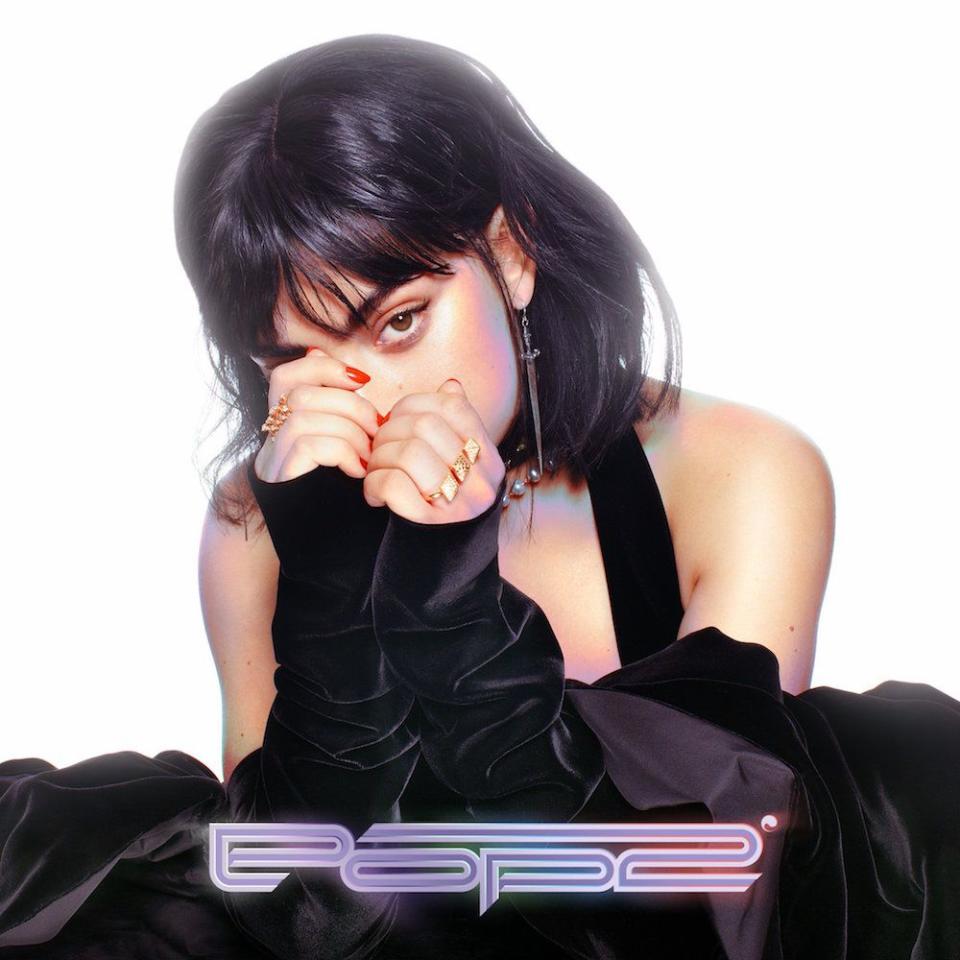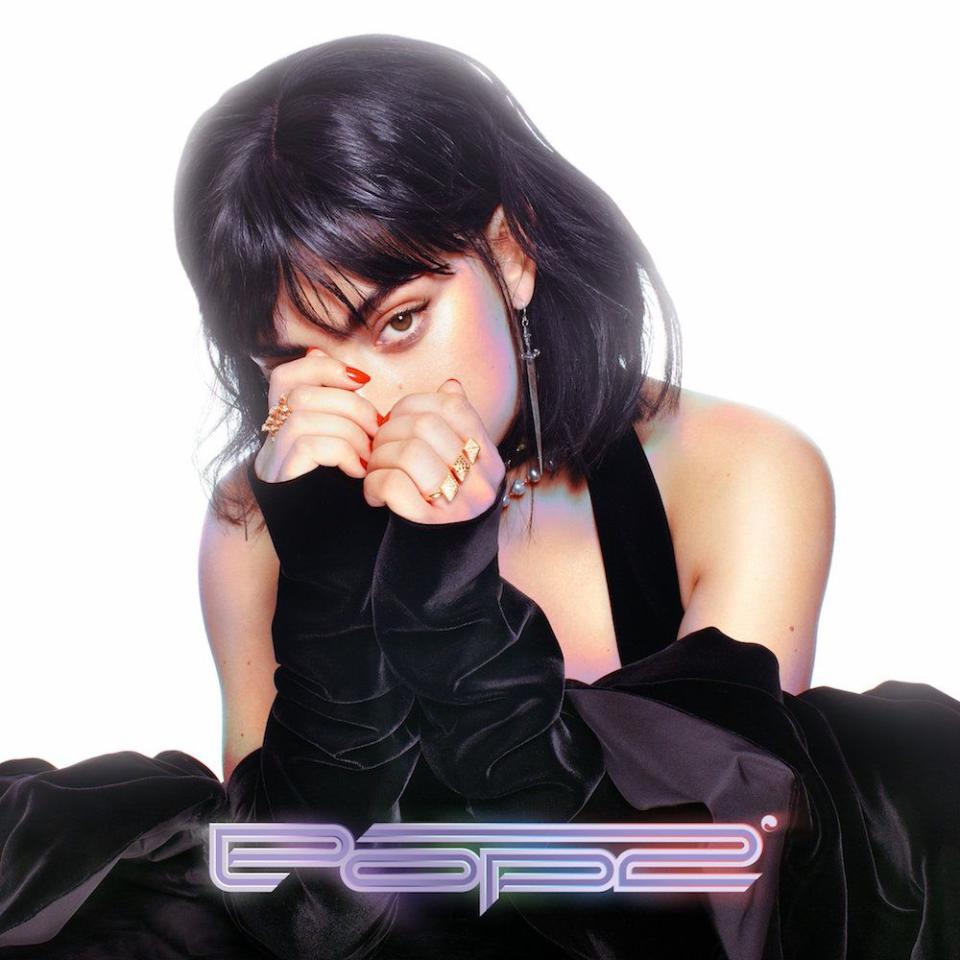Album Review: Charli XCX – Pop 2
Before Charli XCX could make the deranged, dissociated pop eruptions she’s manufactured over the past two years, she had to play more or less within the template. Her first and only two proper albums, 2013’s True Romance and 2014’s Sucker, are packed with the kind of songs you’d expect from the singer who landed the assist on Iggy Azalea’s runaway hit “Fancy”. But even then, a darkness ringed Charli’s bubblegum hooks. She embodied a romantic nihilism on the discombobulated ballad “Black Roses”, and she flexed a gleeful brattiness on the sneering party romp “Sucker”. There aren’t too many pop singers who can rattle off a full-blown “fuck you” within the first minute of an album — nine times out of 10, it comes off childish, try-hard, and toothless. Charli’s in that 90th percentile of those with the poise to pull it off. On Pop 2, her second mixtape of 2017, she digs even deeper into her music’s rough edges, exploiting its paradoxes, peeling back its layers, and having more fun while she’s at it than she’s ever had before.
Backed by PC Music producer A.G. Cook and a formidable cast of guest artists, including Caroline Polachek, CupcakKe, Mykki Blanco, and Carly Rae Jepsen, Charli XCX digs into the mechanics that make contemporary pop music click and nudges them ever so slightly closer to the uncanny valley. She’s not kidding with the title of the tape; if her albums were Pop 1, then Pop 2 deconstructs their success, looking under the hood and dragging the nuts and bolts into the light. By putting its guts on display, Charli can push her provocative, inquisitive breed of pop into a place that shakes its listener from their habits, and returns pop’s tried-and-true pleasures to a state of novelty. Imagine hearing a Max Martin song for the first time — imagine if something perfectly engineered for endless repetition could hit your ears without the sheen of familiarity and boredom already coating it. That’s the effect Charli and Cook go for in their work, and they’re rarely more successful than when they’re working together.
Charli sings most of the tracks on Pop 2 through sheets of Auto-Tune, as thickly applied as on Kanye West’s 808s and Heartbreak but with different intent. Where West made use of excessive Auto-Tune to amplify his emotional pain, breaking the voice as it might break through tears and then breaking it even more, Charli employs the same effect to call attention to the artificiality of the pop voice, to atomize every note and vocal tic. When the “natural voice” (as much as a recorded voice can be natural) is still fetishized in singers, especially women, emphasizing the processing of the voice can be liberating. Charli pushes her voice to grotesque, unnatural pitches throughout Pop 2 — on “Lucky”, where her pitch strains so high it becomes indistinguishable from a shrill, detuned synthesizer, and on “Track 10”, where she mangles her voice until it’s almost unrecognizable as the song climbs towards its demolishing emotional apex. She also uses it not as a melodic tool but as a percussive one, on the deliriously fun “I Got It” and “Unlock It”, where clipped artifacts from the editing process become as much of an instrument as the computerized drums clattering behind her.
Like any artist, the pop singer is a cyborg, a human being who implants their thoughts and feelings into another’s consciousness by way of technology. It’s all artificial is the point, and to hear musicians embrace that artificiality rather than try to mask it opens up new, rawer channels of expression rather than closing them off. For her part, Charli embraces her cyborg status on Pop 2 highlight “Femmebot”, where she declares herself an android and also declares that means she gets whatever she wants, whenever she wants it. The song’s title might insinuate a “pleasure model,” in Blade Runner‘s vernacular, a feminine robot designed around the whims of men. Charli’s femmebot is more of a domme; she gets power out of not being completely human. “I’m an upgrade of your stereotype,” she sings, and while the rest of the track’s lyrics tend toward the comically over-the-top (sparks, short circuits, pushing buttons), there’s freedom in embracing the corny, the cliche, the ridiculous. Once you’ve shown you don’t care about decorum, you can go wherever you want. That the song features not one but two queer artists (Dorian Electra and Mykki Blanco) who play with gender and performance in their own work only highlights its boundary-smearing potential; with its huge, physical vocal gestures, it’s easy to imagine “Femmebot” soundtracking one hell of a drag performance.
By inflating pop music to its cartoonish extremes, Charli and her cohorts find something most artists don’t dare to look for: They find space between the boring and the uncomfortable, the pristine and the filthy, the sterile corporate origins of much radio pop, and the vibrant human spaces in which it’s consumed. In 2017, plenty of people are asking how music will be bought and sold, how channels between manufacturer and listener will remain profitable and unbroken. Those are fair questions, but Charli asks more interesting ones. She’d rather seek out what it is that makes pop work, what moves inside the ear when something irresistible hits it. On Pop 2, her curiosity moves her to strange, beautiful places where she offers up irresistible artifacts all her own.
Essential Tracks: “Femmebot”, “Unlock It”, and “Track 10”




